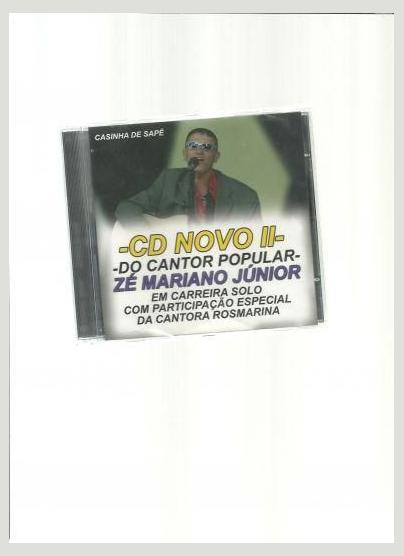 Zé Mariano Júnior
Zé Mariano Júnior
Zé Mariano Júnior: The Troubadour of Peace
In the tapestry of Brazilian popular music, Zé Mariano Júnior stands as a beacon of consciousness and a fearless advocate for peace. His haunting ballad, "Hiroshima Nagasaki," has reverberated through the hearts of generations, serving as a poignant reminder of the devastating consequences of nuclear warfare.
Early Life and Influences
Born in 1935 in the modest town of Goiatuba, Goiás, Zé Mariano Júnior's formative years were marked by a deep love for music and a burgeoning social conscience. His early influences included the traditional folk music of Brazil, as well as the protest songs of Bob Dylan and Joan Baez.
The Birth of "Hiroshima Nagasaki"
In 1967, profoundly moved by the tragedy of the atomic bombings in Japan, Zé Mariano Júnior penned his timeless masterpiece, "Hiroshima Nagasaki." The song's haunting lyrics and somber melody captured the unimaginable suffering and destruction unleashed by those fateful blasts.
Challenges and Controversies
The release of "Hiroshima Nagasaki" was met with both acclaim and controversy. The song's pacifist message challenged the prevailing Cold War rhetoric of nuclear deterrence, and Zé Mariano Júnior faced condemnation from certain sectors of society. However, the overwhelming support from the public and his fellow musicians gave him the courage to continue his advocacy.
Discography
Throughout his prolific career, Zé Mariano Júnior released numerous albums, each imbued with his signature blend of folk, protest, and traditional Brazilian rhythms. Some of his most notable works include:
* "Zé Mariano Júnior" (1966)
* "Hiroshima Nagasaki" (1967)
* "Cantador" (1972)
* "Caminhando" (1981)
* "O Som do Brasil" (1996)
Members
Zé Mariano Júnior's band has undergone several lineup changes over the years, but its core members have included:
* Zé Mariano Júnior (vocals, guitar)
* Paulo Gadelha (bass)
* Beto Brainer (drums)
* Marcos Valle (keyboards)
Legacy
Zé Mariano Júnior's unwavering commitment to peace and social justice has earned him the respect and admiration of countless Brazilians and people around the world. His music continues to serve as a powerful voice for empathy, reconciliation, and the hope of a nuclear-free future.
In recognition of his contributions to Brazilian culture and his tireless activism, Zé Mariano Júnior has received numerous awards and accolades, including the prestigious Prêmio da Música Brasileira (Brazilian Music Award).
Zé Mariano Júnior's legacy as a troubadour of peace will forever be etched in the annals of Brazilian music. His timeless songs, particularly "Hiroshima Nagasaki," will continue to inspire generations to come and remind us of the fragility of human life and the importance of striving for a world free from the horrors of war.
In the tapestry of Brazilian popular music, Zé Mariano Júnior stands as a beacon of consciousness and a fearless advocate for peace. His haunting ballad, "Hiroshima Nagasaki," has reverberated through the hearts of generations, serving as a poignant reminder of the devastating consequences of nuclear warfare.
Early Life and Influences
Born in 1935 in the modest town of Goiatuba, Goiás, Zé Mariano Júnior's formative years were marked by a deep love for music and a burgeoning social conscience. His early influences included the traditional folk music of Brazil, as well as the protest songs of Bob Dylan and Joan Baez.
The Birth of "Hiroshima Nagasaki"
In 1967, profoundly moved by the tragedy of the atomic bombings in Japan, Zé Mariano Júnior penned his timeless masterpiece, "Hiroshima Nagasaki." The song's haunting lyrics and somber melody captured the unimaginable suffering and destruction unleashed by those fateful blasts.
Challenges and Controversies
The release of "Hiroshima Nagasaki" was met with both acclaim and controversy. The song's pacifist message challenged the prevailing Cold War rhetoric of nuclear deterrence, and Zé Mariano Júnior faced condemnation from certain sectors of society. However, the overwhelming support from the public and his fellow musicians gave him the courage to continue his advocacy.
Discography
Throughout his prolific career, Zé Mariano Júnior released numerous albums, each imbued with his signature blend of folk, protest, and traditional Brazilian rhythms. Some of his most notable works include:
* "Zé Mariano Júnior" (1966)
* "Hiroshima Nagasaki" (1967)
* "Cantador" (1972)
* "Caminhando" (1981)
* "O Som do Brasil" (1996)
Members
Zé Mariano Júnior's band has undergone several lineup changes over the years, but its core members have included:
* Zé Mariano Júnior (vocals, guitar)
* Paulo Gadelha (bass)
* Beto Brainer (drums)
* Marcos Valle (keyboards)
Legacy
Zé Mariano Júnior's unwavering commitment to peace and social justice has earned him the respect and admiration of countless Brazilians and people around the world. His music continues to serve as a powerful voice for empathy, reconciliation, and the hope of a nuclear-free future.
In recognition of his contributions to Brazilian culture and his tireless activism, Zé Mariano Júnior has received numerous awards and accolades, including the prestigious Prêmio da Música Brasileira (Brazilian Music Award).
Zé Mariano Júnior's legacy as a troubadour of peace will forever be etched in the annals of Brazilian music. His timeless songs, particularly "Hiroshima Nagasaki," will continue to inspire generations to come and remind us of the fragility of human life and the importance of striving for a world free from the horrors of war.